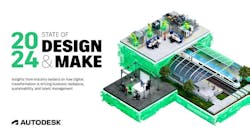Building Management Systems (BMS) have revolutionized how we manage buildings, evolving from a disjointed network of individual solutions to centralized control over entire mechanical and electrical systems. Yet, despite offering consolidated management and increased visibility, one crucial aspect remains surprisingly manual: BMS tuning.
Even with built-in automation, plant engineers still face the laborious task of deciphering voluminous data sets collected by the BMS. Further, systems within the dashboard can only be adjusted after a manual analysis, which is both time consuming and error prone.
Enter Artificial Intelligence (AI), a game-changer in the smart building technology landscape. AI’s ability to organize and analyze vast amounts of data for automated decision-making presents an enticing solution: integrating AI capabilities directly into BMS settings. This shift can eliminate the need for human analysis altogether and pave the way for a future filled with AI-driven building management systems.
Let’s delve into the current state of AI-powered BMS, explore existing challenges and envision the possibilities of this technology in the years to come.
AI Algorithms Purpose-built for BMS
Specially coded algorithms are at the heart of artificial intelligence that can analyze vast data sets to identify patterns that can be used to better tune and optimize software. A BMS algorithm may utilize AI to retrieve weather and humidity data collected from IoT sensors, for example. The algorithm can then analyze the collected data in real-time and use that information to adjust heating, cooling and ventilation (HVAC) systems. The ability to rapidly alter temperature and humidity creates added occupant comforts while eliminating energy overconsumption.
Other BMS-managed solutions beyond HVAC that are now using artificial intelligence include:
- Smart lighting and power delivery. Using data collected from occupancy sensors, lighting and other electrical components can be tuned and delivered only where occupants reside within a building or campus.
- Water management. AI can identify areas where water usage veers from the norm. Analysis can locate ineffective smart taps, leaks or legitimate water uses that must be accounted for.
- Fire safety. AI is now being integrated into fire safety systems that accurately identify and pinpoint the precise location of a fire. From there, the BMS can alert occupants as to the optimal path away from danger.
- System and data security. Because operational technologies are now network- and internet-connected, system and data security has become paramount. OT security tools that leverage AI can help identify network traffic behavior trends that often relate to nefarious activities, such as infected IoT sensors that begin communicating with a command-and-control botnet server. These activities can be quickly identified, quarantined and remediated using AI-based security tools.
Clean Data Is Key for AI-driven BMS Speed and Accuracy
Despite all the advancements in AI, some challenges remain. For example, a BMS can have the best-written algorithms yet consistently fail to deliver “intelligent” results. The root cause is often due to poorly cured data that the AI algorithm was designed to analyze.
The various systems, data collection and data curing methods must be addressed when researching the potential of integrating AI into a BMS. Failing to do so can lead to situations where OT system data contains vast amounts of irrelevant information, duplicate data or data that is conflicting or erroneous. One or more of these issues can lead to failures in AI algorithms that affect efficiency or—even more concerning—accuracy. That’s why it’s vital for data experts to thoroughly review the systems and data to help clean and cure it before implementing decision-making AI into building management systems.
The Future of AI-driven BMS
Today, a BMS manages multiple building plant systems that are largely disaggregated. Data is collected from these various systems and independently analyzed for automated decision-making purposes. In some cases, data sets are merged. However, complex processes lend themselves to bloated data sets with duplicated and unorganized information.
In the future, the various systems a BMS manages will be more tightly integrated thanks to AI. This not only includes cross-functional settings, but also the creation of uniform data collection practices. The advancement in data collection practices within a BMS will soon allow for greater efficiency and accuracy when using complex algorithms and automation.



